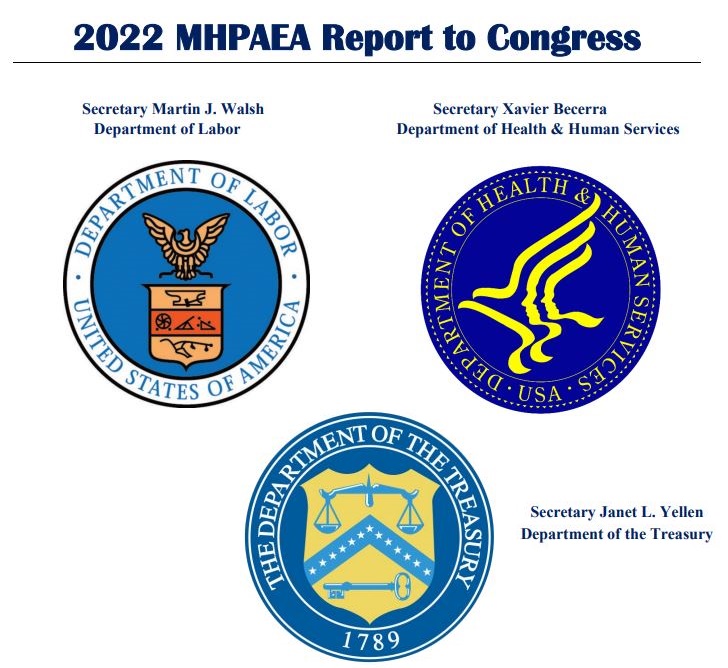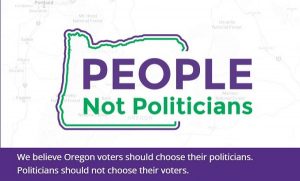Sen. Wyden: Insurance agencies still not covering mental health care as required by 2008 law
4 min read
A tri-agency report released this week showed that the health care system is failing to deliver mental health care services at the same level as physical health care services, as required by a 2008 law.
Washington, D.C. (Jan. 26, 2022) – Senate Finance Committee Chair Ron Wyden, D-Ore., commended a new report from the Biden administration which highlights enforcement efforts and ongoing improvements to the mental health parity law to ensure health insurance plans are in compliance with the law’s requirements.
“For more than a decade, the laws on the books have said mental health care should be treated the same as physical health care, but families have been telling me that insurance companies are continuing to cut corners and sometimes deny necessary care,” Wyden said. “Today’s report shows that insurance companies have not followed the spirit of the law. If given the right tools, I am confident that true mental health parity can become a reality in the American health care system.”
The report, issued by the Department of Labor with assistance from the Departments of Health and Human Services and the Treasury, found 48 instances of non-quantitative treatment limits on behavioral health benefits that were not at parity with medical/surgical benefits among fully-insured and self-insured health plans that provided sufficient information to be investigated and 45 instances of noncompliance among non-federal government health plans. Examples of non-compliance include greater limitations on behavioral health benefits, such as excluding methadone and naltrexone to treat opioid use disorder, pre-certification and prior authorizations requirements, than on the limitations on medical/surgical benefits. Following the notice of non-compliance, the report indicates that many plans and issuers took corrective actions.
The Paul Wellstone and Pete Domenici Mental Health Parity and Addiction Equity Act of 2008 (MHPAEA) requires the Secretary of Labor to submit a report to the appropriate committees of Congress every two years.
The 2022 Report to Congress on the Paul Wellstone and Pete Domenici Mental Health Parity and Addiction Equity Act of 2008 suggests health plans and health insurance issuers are failing to deliver parity for mental health and substance-use disorder benefits to those they cover. The report also highlights the departments’ recent emphasis on greater MHPAEA enforcement in addition to guidance to correct those failures, and makes recommendations to strengthen MHPAEA’s consumer protections and enhance the departments’ enforce abilities.
In general, MHPAEA requires that the financial requirements and treatment limitations – such as copayments and prior authorization requirements imposed by a group health plan or health insurance issuer on mental health or substance-use disorder benefits – cannot be more restrictive than the predominant financial requirements and treatment limitations that apply to substantially all medical and surgical benefits. The report cites specific examples of health plans and health insurance issuers failing to ensure parity. For example, a health insurance issuer covered nutritional counseling for medical conditions like diabetes, but not for mental health conditions such as anorexia nervosa, bulimia nervosa and binge-eating disorder.
“The report’s findings clearly indicate that health plans and insurance companies are falling short of providing parity in mental health and substance-use disorder benefits, at a time when those benefits are needed like never before,” said U.S. Secretary of Labor Marty Walsh. “The pandemic is having a negative impact on the mental health of people in the U.S. and driving a rise in substance use. As a person in recovery, I know firsthand how important access to mental health and substance-use disorder treatment is. Enforcement of this law is a top priority for the Department of Labor and an objective I take personally.”
“Access to mental and behavioral health support is critical as the COVID-19 pandemic continues to impact so many lives across the country,” said U.S. Secretary of Health and Human Services Xavier Becerra. “Unfortunately, as today’s report shows, health plans and insurance companies are falling short of providing access to the treatment many working families need. We are committed to working with our federal partners to change this and hold health plans and insurance companies accountable for delivering more comprehensive care.”
The Department of Labor’s Employee Benefits Security Administration is taking unprecedented steps to enforce the law and to ensure that the agency is using its full authority to facilitate access to mental health and substance-use disorder treatment. Similarly, HHS through its Centers for Medicare & Medicaid Services has increased its MHPAEA enforcement activities in the individual and fully insured group markets in states where CMS has enforcement authority and over non-Federal governmental plans in all states.
“In the past year, the Employee Benefits Security Administration has placed great emphasis on ensuring parity for mental health and substance use disorder benefits,” said Acting Assistant Secretary for Employee Benefits Security Ali Khawar. “As we continue to strengthen and build on these efforts through regulation, enforcement and compliance assistance, EBSA is determined to deliver on the law’s promise.”
The report outlines the departments’ efforts to interpret, implement and enforce the amendments to MHPAEA made by the Consolidated Appropriations Act 2021. The act provided the departments with an important new MHPAEA enforcement tool and additional funding to implement it. The law also requires the departments to report findings under this new provision annually. Today’s issuance is the first report under this requirement.
The report also details the departments’ ongoing efforts to engage with stakeholders to reduce stigma that individuals with mental health conditions or substance-use disorders often face and raise awareness amongst stakeholders of these vital protections.
A fiscal year 2021 MHPAEA enforcement fact sheet is being issued with the 2022 MHPAEA Report to Congress. This fact sheet highlights EBSA’s landmark settlement against United Behavioral Health, as well as other enforcement data and significant results from MHPAEA investigations closed by EBSA and CMS in fiscal year 2021.
EBSA has primary enforcement jurisdiction over MHPAEA for approximately two million health plans covering roughly 136 million Americans. CMS has enforcement jurisdiction over MHPAEA in the individual and fully insured group markets in states where it has enforcement authority and over non-federal governmental group health plans, such as plans sponsored by state and local governments for their employees.




